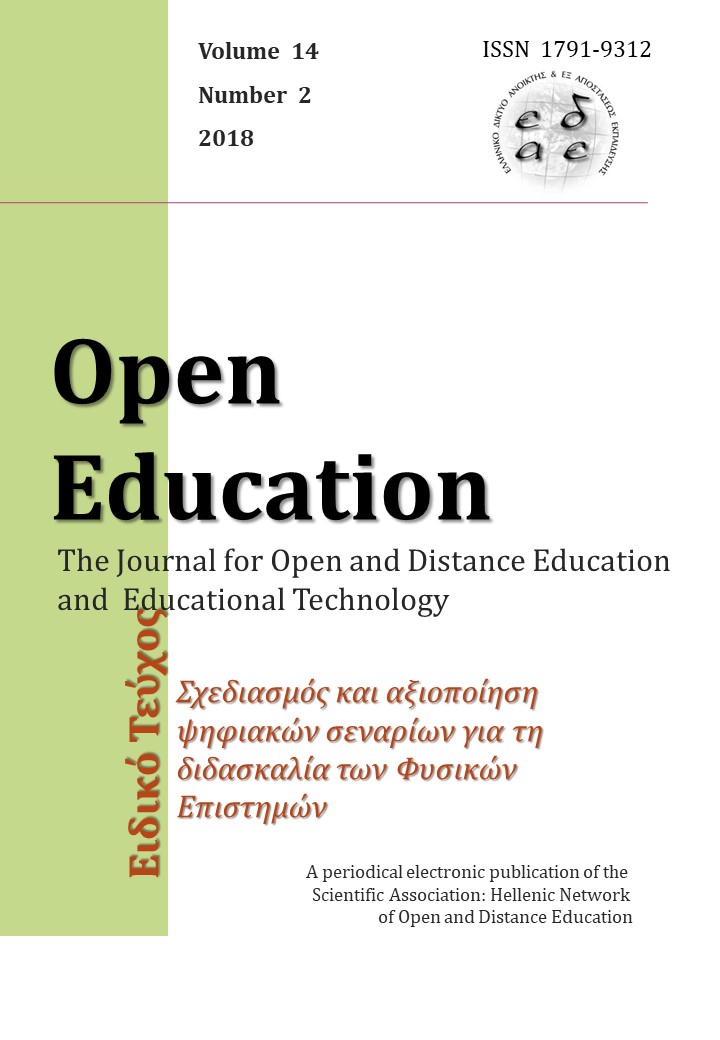Alternative, renewable and conventional energy sources. Digital teaching scenario for high school students

Abstract
Students have already been taught natural resource management lessons. However, their knowledge and perceptions of alternative and renewable sources of energy remain incomplete. The teaching scenario proposed in this article is based on a survey conducted by the writer of this article in 2014-2015 on a sample of 40 high school students on the island of Crete in order to reveal their knowledge and perceptions about conventional, alternative and renewable energy sources. The research questions were as follows: 1) What do students know about conventional and alternative energy sources? 2) Where do students receive information and which is their favorite source of knowledge about alternative energy sources? 3) What ways do students use to save energy? The survey revealed important data summarized in the following: (1) The students' knowledge of conventional, renewable and alternative energy sources was incomplete. (2) Sample information on energy sources comes primarily from school and follows the internet, the family, the media. (3) Although the students perceive the need for energy saving at a significant rate, they refuse to save energy using renewable energy because of higher costs. The digital teaching scenario attempts to help students discover themselves their cognitive deficiencies about energy and make progress in improving their perceptions of saving energy and about sources that cause serious environmental pollution. The effectiveness of teaching scenarios is particularly important as school space is a desirable and primary source of information for students. In the three-hour scenario, the educational problem originally relates to the lack of students’ knowledge and perceptions of renewable, conventional energy sources and their savings. The following are the teaching objectives (cognitive, change perceptions). It also describes the four phases of the scenario where students in groups and with the help of their teacher comment on, discover their cognitive gaps in energy and save, evaluate themselves, approach quality and quantity of conventional and alternative renewable sources of energy in nature and form a correct attitude with the help of digital tools such as: "Energy101videos¨ wevideo HapYak, Cram. Finally, in order to explore both their knowledge and perceptions and to evaluate the results during and after the completion of the teaching scenario process, worksheets will be given to students with questions. The content of the worksheets and their questions will be adapted according to the teacher's judgment, on the students’ learning needs. The knowledge gained from cognitive studies shows that in order to bring about conceptual change in the natural sciences, the student must be an active participant in the construction of his or her own knowledge.
Article Details
- How to Cite
-
Σφακιωτάκη Κ. (2018). Alternative, renewable and conventional energy sources. Digital teaching scenario for high school students. Open Education: The Journal for Open and Distance Education and Educational Technology, 14(2), 154–165. https://doi.org/10.12681/jode.19012
- Issue
- Vol. 14 No. 2 (2018)
- Section
- Section 1
Copyright Notice
Authors who publish with this journal agree to the following terms:
Authors retain copyright and grant the journal right of first publication with the work simultaneously licensed under a Creative Commons Attribution Non-Commercial License that allows others to share the work with an acknowledgement of the work's authorship and initial publication in this journal.
Authors are able to enter into separate, additional contractual arrangements for the non-exclusive distribution of the journal's published version of the work (e.g. post it to an institutional repository or publish it in a book), with an acknowledgement of its initial publication in this journal.
Authors are permitted and encouraged to post their work online (preferably in institutional repositories or on their website) prior to and during the submission process, as it can lead to productive exchanges, as well as earlier and greater citation of published work.


